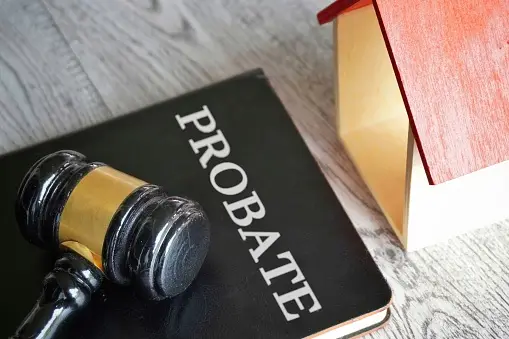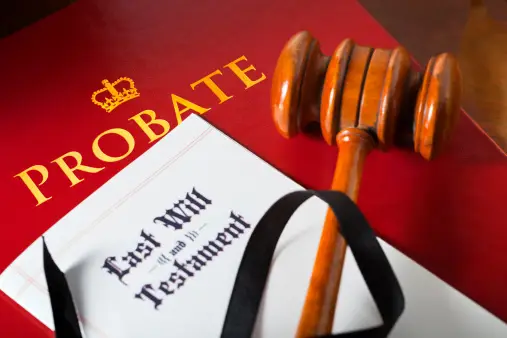Understanding the Probate Process in Texas
The probate process in Texas is essential for legally administering the estate of a deceased person, ensuring that assets are distributed according to their wishes or state law. This process involves validating the will, appointing an executor, and settling debts and taxes before distributing inheritances to beneficiaries.
In Texas, probate is not just a formality; it can be a complex legal procedure that varies based on the size of the estate and the presence of a will. For instance, small estates may qualify for simplified probate procedures, while larger estates may require a more detailed court process. Understanding these nuances can help families navigate the emotional and legal challenges of probate effectively.
Common Mistakes to Avoid During Estate Planning
Estate planning is a crucial step in ensuring that your assets are distributed according to your wishes after your passing. However, many individuals make common mistakes that can complicate the probate process for their heirs. These mistakes include not having a will, failing to update beneficiary designations, and not considering tax implications.
For example, neglecting to review and update your estate plan after significant life events, such as marriage, divorce, or the birth of a child, can lead to unintended consequences. Additionally, not consulting with a qualified attorney can result in documents that do not comply with Texas law, ultimately leading to disputes among heirs and delays in the probate process.
The Role of Executors in Estate Management
Executors play a vital role in managing an estate during the probate process, as they are responsible for carrying out the wishes outlined in the deceased's will. Their duties include gathering assets, paying debts and taxes, and distributing the remaining assets to beneficiaries. The executor must act in the best interests of the estate and its beneficiaries, which requires a good understanding of both legal and financial matters.
In Texas, executors are often family members or trusted friends, but it is essential for them to be well-informed about their responsibilities. Executors can face challenges such as disputes among heirs or difficulties in locating assets. Proper guidance and support from an experienced attorney can help executors fulfill their duties efficiently and effectively.
Exploring Alternatives to Traditional Probate
Traditional probate can be a lengthy and costly process, leading many individuals to explore alternatives that may better suit their needs. Alternatives such as living trusts, transfer-on-death deeds, and joint ownership can help bypass the probate process, allowing for a more streamlined transfer of assets to heirs.
For instance, a living trust allows individuals to place their assets in a trust during their lifetime, which can then be distributed to beneficiaries without going through probate after their death. Understanding these alternatives can be beneficial for individuals looking to simplify the estate management process and ensure a smoother transition of assets to their loved ones.
Understanding the Probate Process in Texas
The probate process in Texas is essential for legally administering the estate of a deceased person, ensuring that assets are distributed according to their wishes or state law. This process involves validating the will, appointing an executor, and settling debts and taxes before distributing inheritances to beneficiaries.
In Texas, probate is not just a formality; it can be a complex legal procedure that varies based on the size of the estate and the presence of a will. For instance, small estates may qualify for simplified probate procedures, while larger estates may require a more detailed court process. Understanding these nuances can help families navigate the emotional and legal challenges of probate effectively.
Common Mistakes to Avoid During Estate Planning
Estate planning is a crucial step in ensuring that your assets are distributed according to your wishes after your passing. However, many individuals make common mistakes that can complicate the probate process for their heirs. These mistakes include not having a will, failing to update beneficiary designations, and not considering tax implications.
For example, neglecting to review and update your estate plan after significant life events, such as marriage, divorce, or the birth of a child, can lead to unintended consequences. Additionally, not consulting with a qualified attorney can result in documents that do not comply with Texas law, ultimately leading to disputes among heirs and delays in the probate process.
The Role of Executors in Estate Management
Executors play a vital role in managing an estate during the probate process, as they are responsible for carrying out the wishes outlined in the deceased's will. Their duties include gathering assets, paying debts and taxes, and distributing the remaining assets to beneficiaries. The executor must act in the best interests of the estate and its beneficiaries, which requires a good understanding of both legal and financial matters.
In Texas, executors are often family members or trusted friends, but it is essential for them to be well-informed about their responsibilities. Executors can face challenges such as disputes among heirs or difficulties in locating assets. Proper guidance and support from an experienced attorney can help executors fulfill their duties efficiently and effectively.
Exploring Alternatives to Traditional Probate
Traditional probate can be a lengthy and costly process, leading many individuals to explore alternatives that may better suit their needs. Alternatives such as living trusts, transfer-on-death deeds, and joint ownership can help bypass the probate process, allowing for a more streamlined transfer of assets to heirs.
For instance, a living trust allows individuals to place their assets in a trust during their lifetime, which can then be distributed to beneficiaries without going through probate after their death. Understanding these alternatives can be beneficial for individuals looking to simplify the estate management process and ensure a smoother transition of assets to their loved ones.









